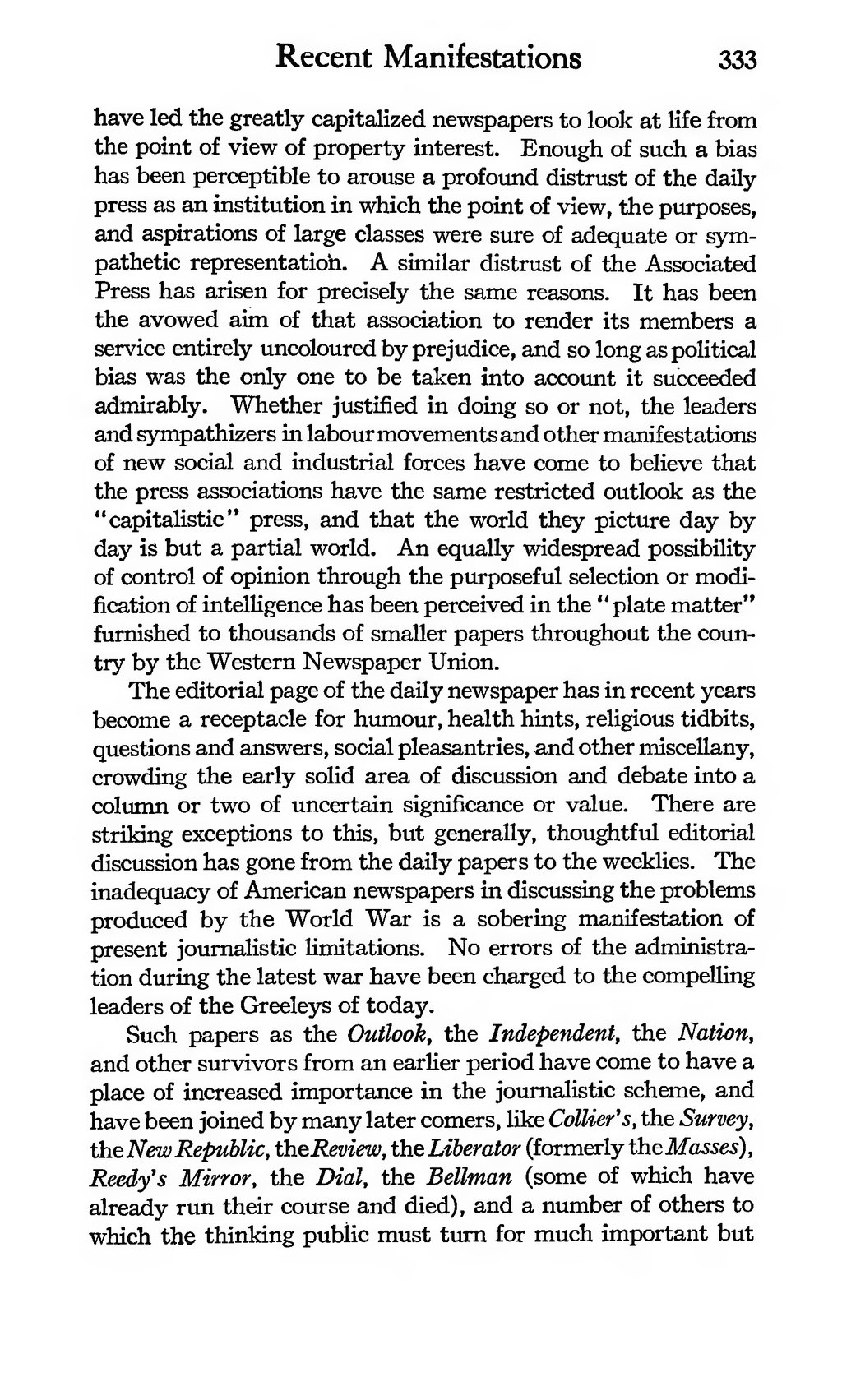have led the greatly capitalized newspapers to look at life from the point of view of property interest. Enough of such a bias has been perceptible to arouse a profound distrust of the daily press as an institution in which the point of view, the purposes, and aspirations of large classes were sure of adequate or sympathetic representation. A similar distrust of the Associated Press has arisen for precisely the same reasons. It has been the avowed aim of that association to render its members a service entirely uncoloured by prejudice, and so long as political bias was the only one to be taken into account it succeeded admirably. Whether justified in doing so or not, the leaders and sympathizers in labour movements and other manifestations of new social and industrial forces have come to believe that the press associations have the same restricted outlook as the "capitalistic" press, and that the world they picture day by day is but a partial world. An equally widespread possibility of control of opinion through the purposeful selection or modification of intelligence has been perceived in the "plate matter" furnished to thousands of smaller papers throughout the country by the Western Newspaper Union.
The editorial page of the daily newspaper has in recent years become a receptacle for humour, health hints, religious tidbits, questions and answers, social pleasantries, and other miscellany, crowding the early solid area of discussion and debate into a column or two of uncertain significance or value. There are striking exceptions to this, but generally, thoughtful editorial discussion has gone from the daily papers to the weeklies. The inadequacy of American newspapers in discussing the problems produced by the World War is a sobering manifestation of present journalistic limitations. No errors of the administration during the latest war have been charged to the compelling leaders of the Greeleys of today.
Such papers as the Outlook, the Independent, the Nation, and other survivors from an earlier period have come to have a place of increased importance in the journalistic scheme, and have been joined by many later comers, like Collier's, the Survey, the New Republic, the Review, the Liberator (formerly the Masses}, Reedy's Mirror, the Dial, the Bellman (some of which have already run their course and died), and a number of others to which the thinking public must turn for much important but
